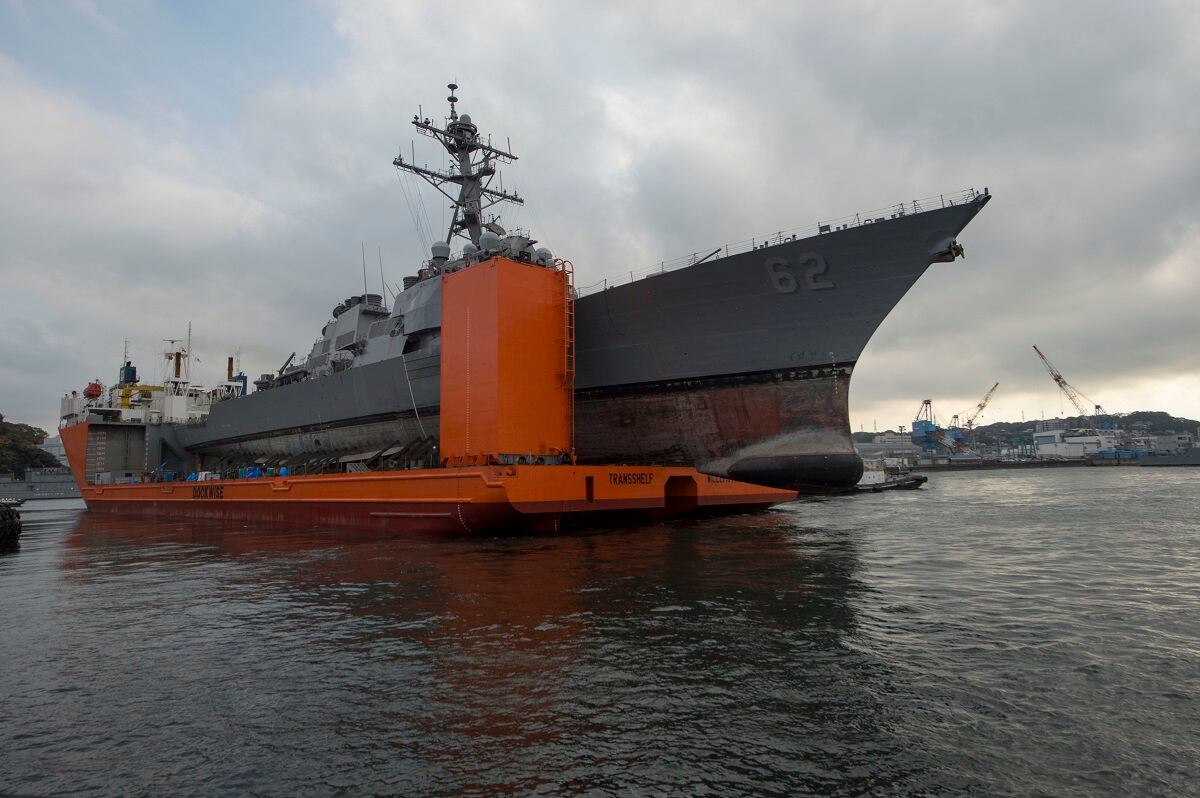The Navy took a stunning and historic measure on Jan. 16 by charging two commanding officers with negligent homicide in the two ship collisions last summer.
This is no longer just a Navy issue.
It’s a move that will have a potentially far-reaching impact on all services and service members up and down the chain of command. It raises unsettling questions about the scope — and limitations — of a commander’s responsibility.
And it sets the stage for one of the most consequential Uniform Code of Military Justice proceedings in generations.
Seventeen sailors died in those mishaps involving the destroyers Fitzgerald and John S. McCain, and the need for accountability is an urgent one. Based on public reports on the Navy investigation, both men deserve punishment.
But in choosing such a severe criminal charge, the Navy is stepping onto a slippery slope.
To be sure, there is sound logic to dropping the hammer on these two officers.
Especially in the Navy’s culture, a skipper’s responsibility for his or her ship is absolute, and aggressive criminal prosecution will reinforce that. And the families who continue to mourn the loss of the 17 sailors deserve some redress.
More broadly, it sends a message to officers that professional failures and poor judgment that senior leaders might implicitly tolerate with a nod or a shrug is nevertheless unacceptable.
There are consequences beyond your next eval report.
But the Navy is now in unchartered waters.
There is no obvious historical precedent for a negligent homicide prosecution for an officer discharging his official duties, however negligently.
The captain of a U.S. Navy destroyer was court-martialed for a 1989 collision that killed one sailor and injured 17. But his charge was dereliction of duty. (He was ultimately not convicted.)
The Navy is taking a big risk here.
Will these criminal charges discourage future leaders from seeking command?
Will this make commanders more risk-averse when making the split-second, life-or-death decisions that they might face?
Will this hurt morale if sailors view this as a politically motivated decision by admirals seeking to appease their critics?
Sadly, today’s Navy suffers from deep, systemic problems, which were outlined in painstaking detail by the recent strategic review from the Navy secretary’s office.
The skippers of the destroyers are not responsible for years of financial mismanagement, an unrealistic operational tempo and bad decisions about how to train sailors and manage their careers.
The defense attorneys for these two officers will have a lot to work with.
Culturally, today’s naval officers suffer from an inability to say no or report real problems up the chain of command.
It would be heartening to think that one outcome from all this would be mid-level Navy leaders who are more willing to tell their boss: “No sir, we can’t do that. The risk is too great.”
But heavy-handed prosecution also threatens good order and discipline if subordinates second-guess their own commanders, claiming a fear of prosecution. A court-martial could get ugly.
“If this is the road the Navy wants to do down, I think these officers should say, ‘Fine, bring it on,’” retired Navy Cmdr. Kirk Lippold, a former skipper of the destroyer Cole told Navy Times. “And be prepared for the witnesses I’m going to call, including the [chief of naval operations], to explain why they allowed the Navy to be inadequately manned, trained and equipped, as he is required by law to do.”
The Navy’s leadership has a long road ahead as it confronts these challenges.
We wish the Navy, as an institution, safe passage as it travels through these stormy waters.





